Carousel is a 1956 film adaptation of the 1945 Rodgers and Hammerstein stage musical of the same name which, in turn, was based on Ferenc Molnár's non-musical play Liliom. The 1956 Carousel film stars Gordon MacRae and Shirley Jones, and was directed by Henry King. Like the original stage production, the film contains what many critics consider some of Rodgers and Hammerstein's most beautiful songs, as well as what may be, along with the plots of Allegro and South Pacific, the most serious storyline found in their musicals.
| Carousel | |
|---|---|
Theatrical film release poster | |
| Directed by | Henry King |
| Produced by | Henry Ephron Darryl F. Zanuck |
| Written by | Ferenc Molnár (play Liliom) Oscar Hammerstein II (musical book) Phoebe Ephron (screenplay) Henry Ephron (screenplay) |
| Based on | Ferenc Molnár's Liliom |
| Starring | Gordon MacRae Shirley Jones Cameron Mitchell Barbara Ruick Claramae Turner Robert Rounseville Gene Lockhart Susan Luckey John Dehner Jacques d'Amboise William LeMassena |
| Music by | Richard Rodgers |
| Cinematography | Charles G. Clarke |
| Edited by | William H. Reynolds |
Production company | 20th Century Fox |
| Distributed by | 20th Century Fox |
Release date | February 16, 1956 |
Running time | 128 minutes |
| Country | United States |
| Language | English |
| Budget | $3,380,000 |
| Box office | $3.75 million (US rentals) |
Screenplay
The story revolves around Billy Bigelow, a rough-talking, macho, handsome carousel barker, and Julie Jordan, a young, innocent mill worker, both living their busy lives in the small town of Boothbay Harbor, Maine. They fall in love, but both are fired from their jobs for different reasons – Billy because he paid too much attention to Julie and incurred the wrath of the jealous carousel owner Mrs. Mullin, and Julie because she stayed out past the curfew imposed by the understanding but stern mill owner, Mr. Bascombe.
Billy and Julie marry and go to live at the seaside spa of her cousin Nettie, but Billy becomes bitter because he is unable to find work, and in his frustration, strikes Julie (this moment is not shown at all in the film). Mrs. Mullin, the jealous carousel owner who is infatuated with him, hears of this and goes to Nettie's to offer Billy his old job back, but will not re-hire him unless he leaves his wife. Billy seems to be considering the idea when Julie asks to talk privately. Julie, fearing he will be enraged, timidly tells him she is pregnant. But Billy is overjoyed and now firmly refuses Mrs. Mullin's offer. However, newly worried about not having enough money to provide for his child, and unskilled at anything except being a carousel barker, Billy secretly agrees to join his pal Jigger Craigin in robbing the wealthy Bascombe.
During a clambake, held on a nearby island, Billy and Jigger sneak to the mainland to commit the robbery, but Bascombe, who is usually unarmed, carries a gun and the robbery is foiled. While Bascombe is momentarily distracted, Jigger flees and leaves Billy at the mercy of the police. Cornered, but trying to escape, Billy climbs atop a pile of crates, whereupon the pile collapses and Billy accidentally falls on his own knife. The others return from the clambake, and Julie sees the mortally wounded Billy. She rushes over to him and he dies after saying his last words to her. Julie is devastated because she truly loved him, even though she never had the courage to say it out loud.
Fifteen years later, in the other world (apparently the back door of Heaven), Billy is told that he can return to Earth for one day to make amends. Billy returns to find his daughter Louise emotionally scarred because she is constantly taunted over the fact that her father tried to commit a robbery. Billy, not telling her who he is, makes himself visible, tries to cheer her up, and gives her a star that he stole from Heaven. Louise refuses it, frightened, and Billy, in desperation, slaps her hand. She rushes inside the house and informs Julie of what happened, saying that she did not feel a slap, but a kiss. Billy tries to make himself invisible before Julie can see him, but she has glimpsed him for just a split second, and senses that he has come back for a reason. Billy asks his Heavenly Guide for permission to go to Louise's high school graduation, and there he silently gives both Louise and Julie the confidence they need and the knowledge that, in spite of everything, he did love Julie.
- Gordon MacRae as Billy Bigelow
- Shirley Jones as Julie Jordan
- Cameron Mitchell as Jigger Craigin
- Barbara Ruick as Carrie Pipperidge
- Claramae Turner as Cousin Nettie Fowler
- Gene Lockhart as the Starkeeper and Dr. Seldon
- Robert Rounseville as Enoch Snow
- John Dehner as Mr. Bascombe
- Susan Luckey as Louise Bigelow
- Jacques d'Amboise as the Starlight Carnival barker
- William LeMassena as the Heavenly Friend
- Tor Johnson as Strong Man (uncredited)
The film was made in CinemaScope 55, and DeLuxe Color. It was, however, ultimately shown in regular 35 mm CinemaScope rather than the 55 mm version of the process, although the original premiere did feature a six-track magnetic stereo soundtrack specially devised for CinemaScope 55. It was played on a separate machine synchronized with the picture. All of the other prints of the film were composite prints, and used the standard 4-track stereo soundtrack featured on regular CinemaScope films circa 1953–1957.
The film followed the stage musical faithfully, except for five major changes:
- In the film, Billy dies by accident, rather than by suicide as in the show – when he falls on his own knife while trying to escape arrest. In the show, he deliberately stabs himself while standing on the pile of crates, which does not collapse.
- The "recitative" singing in the "bench scene", leading directly into the song "If I Loved You", is turned into spoken dialogue.
- The "recitative" singing that leads directly into the song "June Is Bustin' Out All Over" is eliminated.
- The film begins in 1888, with Billy having been dead for fifteen years, and the story of his life on Earth (from his first meeting with Julie at the carousel to his death) is made into a flashback that takes up three-quarters of the film. Billy tells his own story to the Starkeeper in order to receive permission to return to Earth for one day, which he was offered when he first arrived and turned down. This last change was made to safeguard against the movie audience's being surprised at the death of Billy, and to prevent them from leaving the movie theatre directly after it happens in case they thought the story ended at that point.
- In the film, there is no specific mention of the fact that Billy must return to Earth for one day and perform a good deed in order to win entry into Heaven, as there is in the play. In the film's opening scene (a pre-credits sequence), a Heavenly Friend advises Billy that "there's trouble...down on Earth", in case he should like to return there. Billy takes the friend up on the offer, but the film gives the impression that he is not doing it specifically to be admitted into Heaven.
A smaller, less important change was the switching of the song "When The Children Are Asleep" to a later moment in order to take full advantage of the Maine locale. In the film, it is sung in a new scene by Carrie and Mr. Snow in their boat as the couple, together with Julie and Billy, sail to the island for the clambake. (This would logically place the song between Acts I and II of the stage version.) In the stage version, the song is unheard by any of the other characters, but the film places it so that Julie and Billy are there to listen to the song, and to lend a sharp contrast to the happiness that Mr. Snow feels in comparison to Billy's obvious uneasiness about the robbery that he and Jigger are soon to commit.
Other minor changes include a scene bridging the duet between Julie and Billy singing "If I Loved You" and the ensemble number "June is Bustin' Out All Over", in which Cousin Nettie is first introduced arguing with a local fisherman who is gossiping about where Julie has disappeared to with Billy after losing their jobs. Immediately afterwards, Julie appears with a sullen Billy whom she introduces to Nettie as her new husband, and Nettie welcoming him into the family despite her obvious reservations. Followed by a dialogue in Heaven between Billy and the Starkeeper, during which Billy admits he didn't so much mind sponging off of Nettie as he did mind having nothing to do.
Another minor change, albeit an interesting one, was an additional bit of dialogue concerning the fate of Jigger, which was not revealed in the original musical. The Starkeeper informs Billy that Jigger has died, and although he refuses to say anything further than that, it is implied that Jigger's soul ended up in Hell.
Frank Sinatra was originally cast to play Billy Bigelow. He even pre-recorded the songs he was to sing in the film. Prior to filming, the cast knew they had to film some scenes twice, one for regular Cinemascope and the other for CinemaScope 55. According to one account, when Sinatra arrived on the set, he claimed that he was being paid to film one movie, not two, and he walked away from the set and said: "You’re not getting two Sinatras for the price of one". However, according to Shirley Jones' 2014 autobiography, the real reason he walked away from the film was that the love of his life, Ava Gardner, told him that if he didn't accompany her on her film set immediately, she would start an affair with her costar. Gardner was in the late stages of filming The Barefoot Contessa at the time. Whichever is the truth, after Sinatra left the production, the filmmakers found a way to film the scene once on 55mm, then transfer it onto 35mm; thus, the film did not have to be shot twice. But on February 14, 1958, Shirley Jones guested on the Frank Sinatra Show and was able to perform "If I Loved You" with him. This performance gives a taste of what could have been if Sinatra had not quit the film, and can be seen on the DVD Sinatra – The Classic Duets. The songs that Sinatra recorded for the original soundtrack were never released to the general public due to contractual issues. "Soliloquy", the song that the character Billy Bigelow sings when he learns that his wife is expecting a child, was one of Sinatra's favorites. He recorded it in the 1940s for Columbia, tried it at Capitol in the 1950s, and recorded it again in the 1960s for Reprise. At one point, Judy Garland was announced to star in the film opposite Sinatra before Jones was brought on board in her place.
The world premiere of the film, held in New York, was attended by Washington diplomats as well as film stars. Among those in the audience were Averell Harriman and Edmund Muskie. Muskie was at that time the governor of Maine, where the story is set and where a large part of the movie was filmed. Locations for the film include:
The film received mostly good reviews, but sources differ as to its financial success. Musical theatre scholar Thomas Hischak stated that the film "was a box office success across the country and 20th Century-Fox earned a considerable profit on the picture". However, the review at allmovie.com states: "The film's often downbeat tone ... did not resonate with 1950s audiences, making Carousel a surprising box-office flop. Some reviewers were also critical of the acceptance of wife beating in the film." Another analysis states that "The American release of Carousel actually lost money for Twentieth Century Fox, but Kine Weekly claimed that it was generally successful at the British box office."
The soundtrack album sold well, and the film's exposure on television, VHS and DVD has won a larger audience for it. It was one of only three Rodgers and Hammerstein films (out of nine) that were not nominated for any Academy Awards. (The 1962 State Fair, an unsuccessful remake of R&H's hit musical written especially for film, and an unsuccessful animated remake of The King and I (1999) received no nominations either. Unlike Carousel, however, they were almost universally reviled by critics.) However, some of the technical staff of Carousel also worked on the first film version of The King and I, also released in 1956, and they did receive Academy Awards for that film, so they did not go home empty-handed on Oscar Night 1957. ‘’Carousel’’ received its home video debut in September 1990 and again in 1994 and 1999. The DVD edition debuted in 1999 and again in November 2006 for its 50th Anniversary, concurrent with the 50th Anniversary release of ‘’The King and I’’ as well as ‘’South Pacific’’. All three films were released as a 2-disc special edition full of bonus material, including audio commentary.
Carousel was named #41 on Channel 4's (London) list of 100 Greatest Musicals.
Also, the film is recognized by American Film Institute in these lists:
- 2002: AFI's 100 Years...100 Passions – Nominated
- 2004: AFI's 100 Years...100 Songs:
- "If I Loved You" – Nominated
- "June Is Bustin' Out All Over" – Nominated
- "You'll Never Walk Alone" – Nominated
- 2006: AFI's 100 Years...100 Cheers – Nominated
- 2006: AFI's Greatest Movie Musicals – Nominated
The soundtrack album was first issued on LP in 1956 by Capitol Re
Watch movie Carousel Film online on Amazon
Watch movie Carousel Film online
Watch The Movie On PrimeDance Dance Full HD Movie Download
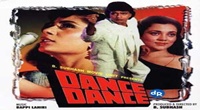
Majboor Full HD Movie Download

Tahaan Full HD Movie Download

Stop! Full HD Movie Download

Humko Deewana Kar Gaye Full HD Movie Download

Yash (1996) Full HD Movie Download
.jpg)
Hathkadi (1982) Full HD Movie Download
.jpg)
Pancharangi Full HD Movie Download

Samantar Full HD Movie Download

Manathil Uruthi Vendum Full HD Movie Download

Manassu Full HD Movie Download

Sherlock Holmes Full HD Movie Download
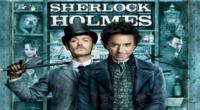
Blood Diamond Full HD Movie Download
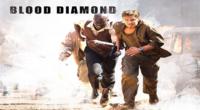
The Green Mile Full HD Movie Download
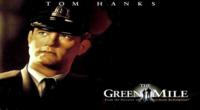
Anand Full HD Movie Download

Bharya Biddalu Full HD Movie Download
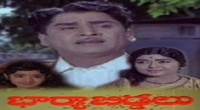
Dongodu Full HD Movie Download

Edurinti Mogudu Pakkinti Pellam Full HD Movie Download
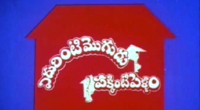
Priyamaina Srivaru Full HD Movie Download

Prema Paga Full HD Movie Download
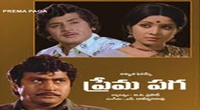
Gudachari 116 Full HD Movie Download
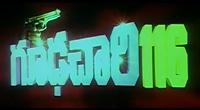
Download latest Movie from bollywood
- 1> baaghi 3
- 2> THE SKY IS PINK MOVIE FULL STORY AND REVIEW
- 3> Luka Chuppi
- 4> TO ALL THE BOYS I’VE LOVED BEFORE
- 5> Kabir Singh
- 6> Street Dancer 3D
- 7> Simmba
- 8> Gone Girl
- 9> The Girl Who Lived
- 10> Ludo
- 11> DILWALE DULHANIA LE JAYENGE
- 12> GUILTY
- 13> The Godfather
- 14> Adventures of Rusty
- 15> Sooryavanshi
- 16> Satyameva Jayate 2
- 17> Thappad
- 18> Bhool Bhulaiyaa 2
- 19> KGFChapter 2
- 20> Mardaani 2
- 21> Pinjar
- 22> Shivaji maharaj
- 23> Ek Villian 2
- 24> Hungama 2
- 25> Divergent
- 26> Mumbai Saga
- 27> The Internship
- 28> HIT (telugu)
- 29> Panga
- 30> The perfect date
- 31> 16 December
- 32> Gopala Gopala (Telugu)
- 33> Brahmastra
- 34> Gangubai Kathiawadi
- 35> Manmadhudu
- 36> Nenu local
- 37> Mahanati
- 38> Shatamanam bavathi
- 39> Lagaan
- 40> After
- 41> MOM
- 42> Shamshera
- 43> Raguvaran BTech
- 44> Khakee
- 45> The villain
- 46> OM
- 47> Mr. perfect
- 48> Bueatifull mind
- 49> Hichki
- 50> Gabbar Singh
- 51> Jogi
- 52> Before Sunrise
- 53> Before Sunset
- 54> Before Midnight
- 55> The Big Bull
- 56> Top Gun: Maverick
- 57> The Purge
- 58> The Sky is Pink
- 59> Laxmmi Bomb
- 60> Sadak 2
- 61> Sufna
- 62> Prithviraj
- 63> PK
- 64> Coolie No 1(2020)
- 65> Black Widow
- 66> Dear Zindagi
- 67> Dil Bechara
- 68> PHIR HERA PHERI
- 69> WAR
- 70> Dostana
- 71> RRR: Roudram Ranam Rudhiram
- 72> Maidan
- 73> Dabbang 3
- 74> Chhalaang
- 75> life as we know it
- 76> SherShaah
- 77> Sandeep Aur Pinky Faraar
- 78> Event Horizon
- 79> 83
- 80> Radhe: Your Most Wanted Bhai
- 81> Gunjan Saxena: The Kargil Girl
- 82> Mr India
- 83> Vivah
- 84> Anokha Bandhan
- 85> Ghost
- 86> Bhoot: Part One - The Haunted Ship
- 87> Haseen Dilruba
- 88> Laal Singh Chaddha
- 89> Qismat
- 90> Rajput
- 91> Drive
- 92> Dil Chahta Hai
- 93> Dil Ki Baazi
- 94> Dil Ka Rishta
- 95> Teesri Manzil
- 96> Dil
- 97> Love Aaj Kal
- 98> Khaali Peeli
- 99> Bunty Aur Babli 2
- 100> Atrangi Re
- 101> Gulabo Sitabo
- 102> Jodi
- 103> Suraj Pe Mangal Bhari
- 104> Deewana
- 105> Attack
- 106> Sardar Udham Singh
- 107> Toofan
- 108> THE LOVEBIRDS
- 109> Jersey
- 110> Ginny Weds Sunny
- 111> Thalaivi
- 112> Shiddat
- 113> Angels vs Zombies
- 114> Koi Mil Gya
- 115> Thank God
- 116> Bhuj: The Pride of India
- 117> Hum Aapke Hain Kaun
- 118> The Platform
- 119> Bird Box
- 120> Roohi Afzana
- 121> Torbaaz
- 122> Nikamma
- 123> World War Z
- 124> Extraction
- 125> Train to Busan
- 126> Life of Pi
- 127> SHAADI MEIN JROOR AANA
- 128> Himmat Aur Mehnat
- 129> To All The Boys: P.S. I Still Love You
- 130> Mimi
- 131> Good Newwz
- 132> Shubh Mangal Zyada Saavdhan
- 133> Raabta
- 134> Harry Potter and the Philosopher's Stone
- 135> Harry Potter and the Chamber of Secrets
- 136> Chhapaak
- 137> War of the Worlds
- 138> Harry Potter and the Prisoner of Azkaban
- 139> Harry Potter and the Goblet of Fire
- 140> MURDER MYSTERY
- 141> Shakuntala Devi
- 142> Bachchan Pandey
- 143> Jayeshbhai Jordar
- 144> Sheer Qorma
- 145> Saina
- 146> 'O' Pushpa I hate tears
- 147> Kedarnath
- 148> MS Dhoni The Untold Story
- 149> Chhichhore
- 150> Badhaai Ho
- 151> Unstoppable
- 152> Oz the Great And Powerful
- 153> The Girl on the Train
- 154> Haathi Mere Saathi 2020
- 155> The Conjuring: The Devil Made Me Do It
- 156> Gandhi Se Pehle Gandhi
- 157> The Song of Scorpions
- 158> Srimanthudu
- 159> Hello Guru Prema Kosame
- 160> Beauty and The Beast
- 161> Black Panther
- 162> Charlie and the Chocolate Factory
- 163> Bole Chudiyan
- 164> Fidaa
- 165> Duvvada Jagannadham
- 166> Bruce Lee: The Fighter
- 167> Hyper
- 168> Yaara
- 169> Red (2020)
- 170> Shivam
- 171> That Is Mahalakshmi
- 172> Nishabdham
- 173> Aashram 2020 web series
- 174> Laxmii
- 175> Mismatched
- 176> STUDENT OF THE YEAR 2
- 177> NAIL POLISH
- 178> Ramprasad Ki Tehrvi
- 179> KAAGAZ
- 180> 12 o Clock
- 181> The Power
- 182> bolo hau
- 183> Tribhanga
- 184> JAMUN
- 185> Madam Chief Minister
- 186> Maasaab
- 187> Aadhaar
- 188> Tanhaji
- 189> Bhaagi 3
- 190> Bhootnath
- 191> MALANG
- 192> Jai Mummy Di
- 193> Haathi Mere Saathi 2021
- 194> Shakeela
- 195> Unpaused
- 196> Annayya
- 197> Vamsoddharakudu
- 198> Mrugaraju
- 199> Narasimha Naidu
- 200> Sankranti
- 201> Manasu Maata Vinadhu
- 202> Anjaane
- 203> Apaharan
- 204> Bachke Rehna Re Baba
- 205> Bewafaa
- 206> Roohi
- 207> Radhe
- 208> Zindagi Khoobsoorat Hai
- 209> Yeh Mohabbat Hai
- 210> Yeh Kya Ho Raha Hai?
- 211> The Tomorrow War
- 212> DehradunDiary
- 213> Meri Shaadi Karaoo
- 214> Matruu Ki Bijlee Ka Mandola
- 215> No One Killed Jesica
- 216> Aag Ka Goola
- 217> Eight Million Dollars
- 218> Three Hundred
- 219> Cats and Dog
- 220> Decoy
- 221> Gold Rush
- 222> You Have Got Mail
- 223> Final Destination three
- 224> Tofan
- 225> Jungle
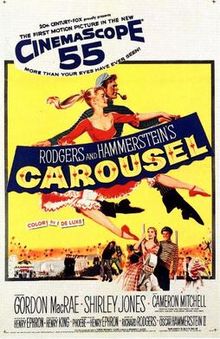 Story of movie Carousel Film :
Story of movie Carousel Film : 